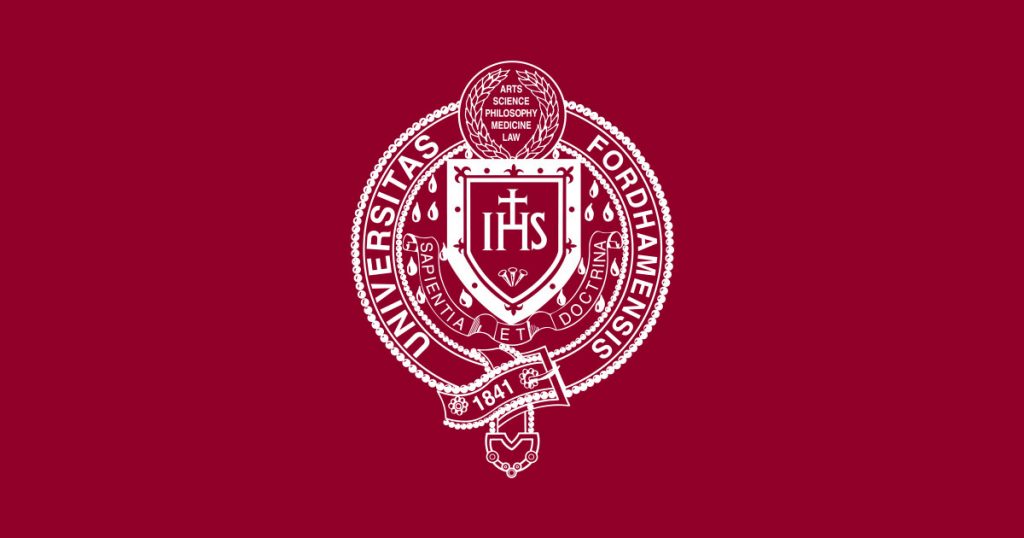From the Office of the President:
Dear Members of the Fordham Community,
We have written to you about various aspects of the Fordham Forward plan to reopen our campuses. Today I would like to focus specifically on the University’s facilities operations, though of course there will be some overlap with other efforts. Marco Valera, Fordham’s vice president for administration, is the University’s COVID-19 coordinator: he oversees policy development, compliance, and the flow of information to external agencies. He is assisted by coordinators at the department level in the enforcement of compliance guidelines and the development of plans for specific operational groups.
You should know that Fordham’s procedures are based on the latest guidance from federal, state, and city agencies. Those procedures fall into several categories, including organizational management, managing behavior, cleaning and disinfecting practices, management of personal hygiene materials and services support, and engineering controls.
Perhaps the most visible aspects of the Fordham Forward plan are the modifications to the University’s facilities, which include: changing foot traffic flows in high-use areas with associated floor markings, directional signage, and modifying stairway directions to minimize potential face-to-face exposure; reduced elevator capacity and usage—including social distancing in waiting areas; discontinuing the use of shared private offices; and identifying “enter” and “exit” doors where feasible. Signage and public awareness campaigns will continue and be omnipresent across the campuses.
We will make major changes to Ram Van procedures, including: reducing vehicle occupancy to below 50% of capacity, with one passenger per row not seated directly behind the person in front of them; limiting use to students or faculty with classes; requiring drivers and all passengers to wear face coverings inside the vehicles; reducing lobby waiting areas; and using outside air/open windows in vehicles, rather than recirculating air.
Each member of the University community will have responsibility for maintaining safe and hygienic conditions in their personal spaces. Custodial Services will provide all major cleaning and disinfecting services at increased frequency, depending upon the level of risks associated with the particular area. We expect students, faculty, staff, and visitors to practice good handwashing, maintain six-foot distancing, and wear face coverings in public areas. The University is providing wipes and other appropriate disinfecting materials with the expectation that the students will wipe down desks, shared equipment, and other contact surfaces before and/or after class. High-risk contact areas will be cleaned and disinfected by Custodial Services using EPA-approved disinfection products and following procedural guidance from the CDC and professional industry societies.
Hygiene products such as hand sanitizer stations, soap, and wipes dispensers will be deployed around campus. Likewise, each member of the campus community will be provided with a number of reusable, washable face coverings by the University.
Mail services have been modified to minimize contact. Academic and administrative departments will receive a schedule to pick up their mail to eliminate queuing. Large package and accumulated mail delivery (two-week accumulation) to each department can be dropped off in the designated lobby area upon request. Students will be assigned a scheduled mail pickup time to minimize congregation at the mailboxes. Students who receive packages already receive email notification but will also get a scheduled pickup time for the package.
Facilities Operations has modified buildings’ ventilation systems to maximize the use of outside air and reduce the amount of recirculated air to the extent that we can maintain reasonable building comfort levels. The University will employ enhanced particulate filtering where possible, and portable high-efficiency particulate arrestance (HEPA) air filtration units will be installed in classrooms which have ventilation systems that use recirculated air. The University will allow open windows and run building ventilation 24 hours per day to increase outside airflow wherever possible.
The University will limit hand dryer usage to dryers which include HEPA filters, such as Dyson Airblades. We will also provide paper towels for hand drying. The University will limit restroom capacity to the number of lavatory sinks available. We are also placing transparent barriers in locations where social distancing cannot be maintained and where face-to-face interactions with visitors or potentially COVID-impacted individuals take place. Typical installation areas include University Health Services facilities, Public Safety desks and guard posts, and dining area cashiers.
I know there is much to absorb in this email, and yet it does not encompass everything the University is doing to protect the students, faculty, and staff who will be on campus with us this fall. You can find more information on every aspect of our reopening plans at the Fordham Forward pages. As I have said before, we will all be living with change during the pandemic—sometimes on very short notice.
I am proud and gratified at the way the Fordham family has responded to this extended emergency. You have risen to the occasion magnificently, and continue to do so as we get ready to welcome the community back to campus. Thank you for all you have done and are doing to help keep your classmates and colleagues safe and well.
Sincerely,
Joseph M. McShane, S.J.

